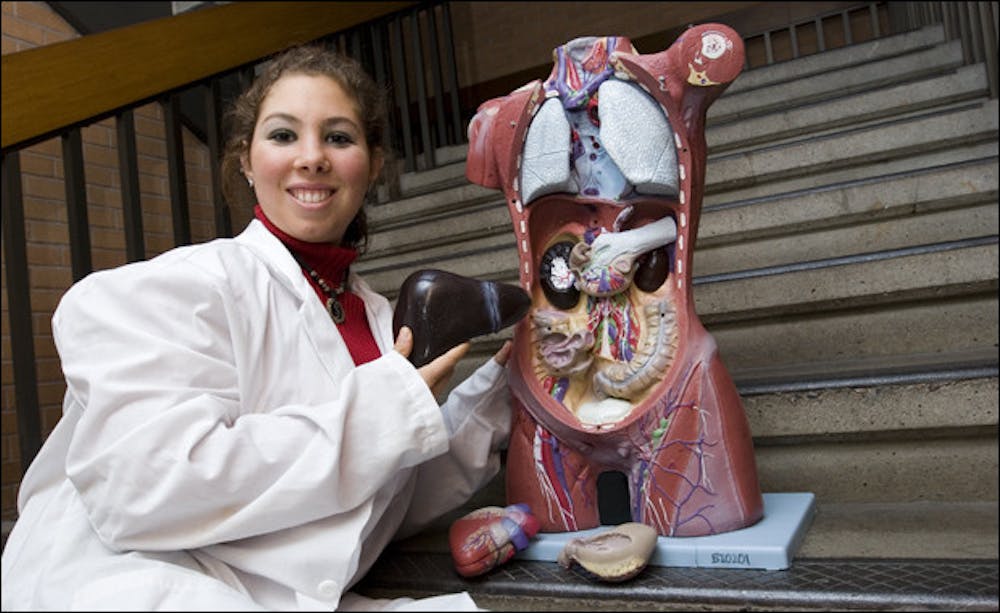Instead of using Google to research possible medical problems, two University librarians explained the criteria for determining a quality medical Web site.
Kathleen Carlson, a health sciences librarian at the Downtown campus, participated in a presentation with Jacqueline Doyle, the head of the UA College of Medicine library in Phoenix late last month.
“I’ve been attending the ASU Breakfast Series for a couple years now, and I thought [quality medical health sites] would be a good topic,” Doyle said.
The ASU Breakfast Series, “Get Smart,” is held monthly at Tom’s Tavern in Phoenix. The free series involves speakers from UA and ASU, who tackle different issues which concern the public.
Carlson and Doyle’s presentation was titled “Finding quality health information on the Internet.”
Doyle said she has had experience working for Banner Health, where “we worked with patients to help them find the best Web sites” for health information.
Before becoming a health sciences librarian, Carlson was a journalist. She has been a librarian for 15 years.
“I’ve learned to use my skills as a researcher [and] as a television news producer and writer and applied that to the health sciences,” Carlson said.
Carlson said she approves of medical Web sites because they allow consumers to be more aware of their own health.
“I think being more intuitive with what your health is, your own health, it can only help.”
But Carlson said the Web sites should be of a certain quality.
“When you bring in information to your health professional, you have to make sure that the information you got off a Web site is [from] a qualitative health site,” Carlson said.
The idea of quality medical Web sites is what sparked Carlson to do the presentation.
“We showed them … the criteria to determine if it’s a good health site,” she said.
The criteria can also be used toward other Web sites as well, Carlson said.
“Not only is it good criteria to check on a health site, it’s good criteria to check for anything [like] if you purchase things online.”
Carlson said the two librarians presented a top 10 list of “consumer health Web sites” from the Medical Library Association, which includes sites such as www.medem.com and www.mayoclinic.com.
According to the Consumer and Patient Health Information Section, part of the Medical Library Association, criteria for a quality medical Web site includes currency, credibility, content and audience.
But some of the top Web sites change, Carlson said.
“A lot of this stuff is grants. If the money runs out, then the Web site disappears,” she said.
The medical Web sites listed, which come from a larger top 100 list on the association’s Web site, are at least better than Google, Carlson said.
She said she has observed students heading to Google first when searching online.
“Google is just a browser, and none of us know how it brings up your search,” she said.
Psychology senior Serena Goldstein said she usually already knows what to do about her medical problems, but she wants to confirm her knowledge by going online.
“Usually when I go to Web sites, I go to multiple [sites], after Googling it,” she said.
Reach the reporter at reweaver@asu.edu.




